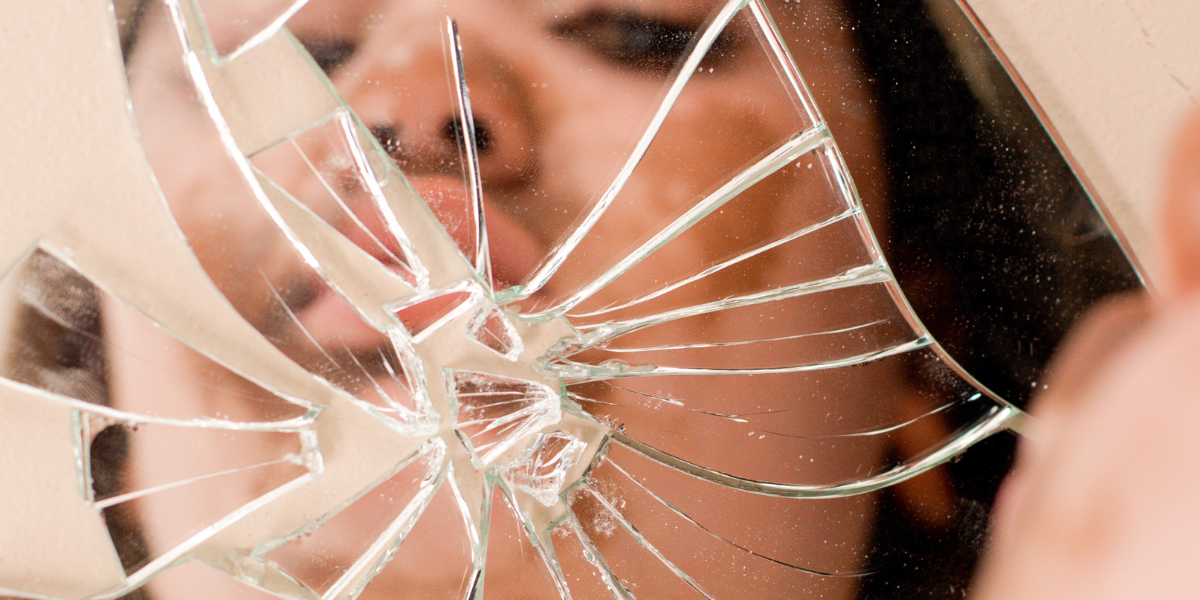Have you ever tried a face filter? You know the ones... The filters on social media apps that slightly distort the way you look to fit whatever current beauty trend is hot at the moment. We might attribute these technological innovations to the early dog and rainbow filters of Snapchat, but now they’ve become easily accessible across major platforms like Instagram and TikTok.
What started off as fun little masks and face swaps with your friends has evolved into AI-generated images depicting your perfect hair colour, the ideal shape of your brows, what you'd look like with a slimmer nose, bigger eyes, fuller lips…
In an era where the digital intertwines seamlessly with the actual, the concept of beauty has undergone a metamorphosis. And much like a butterfly emerging from its cocoon, various concerns (valid ones, too!) have emerged in light of these AI-powered beauty filters. These digital tools promise instant enhancements, from smoothing out wrinkles to reshaping facial features, all with a simple swipe or tap.
Yet, beneath the allure of computerized perfection lies a complex landscape of implications on our mindset, self-esteem, and views of beauty—especially for the youth.
Alluring AI
AI beauty filters have become so ubiquitous across social media that they often go undetected. There was a time when an awkward movement would distort the filter making it easy to clock. But advancements have been made since, offering users the ability to seamlessly modify their appearance in real-time, even throughout a variety of facial expressions and movements.
These filters use advanced algorithms to detect facial features and apply digital modifications, ranging from subtle touch-ups to drastic transformations. By blurring imperfections and accentuating desirable traits, these filters cater to society's idealized standards of beauty, fostering a culture immersed in flawless aesthetics.
While some countries have implemented strict guidelines to inform viewers when a filter is being used, some tools like the retouching feature on our phones can still be used without any indication. What does constantly seeing "perfection" do to our own well-being?
Mind over Matter
While AI beauty filters provide a temporary boost in confidence by concealing perceived flaws, constant exposure to digitally altered versions of ourselves can distort perceptions of our actual appearance, leading to heightened self-consciousness and diminished self-esteem.
We may find ourselves comparing our authentic, unfiltered selves to our virtually enhanced doppelgangers... We know we have and we cannot imagine the impact it's having on young users online.
There have been instances of folks seeking cosmetic procedures to resemble their beauty-filtered selves in real life and using screenshots as reference photos. We want to emphasize that there is nothing wrong with exploring and pursuing cosmetic procedures. That is an incredibly personal decision—you do you, always!
Being in the business of beauty, we are always encouraging open-minded conversations and challenge how social media and technology can impact our perceptions of what it means to be beautiful.
What is Beautiful?
You’ve heard this time and time again: beauty is in the eye of the beholder.
While true, we won’t deny that the beholder is often impacted by beauty conventions and social standards. And the widespread use of AI beauty filters has not only affected individual self-perception but is actively shaping these societal views of beauty. As filtered images dominate social media feeds, they set standards that saturate pop culture.Just ask our friends over at MD Beauty Clinic.
They are always researching new trends in the non-surgical beauty space and can see first-hand how these filters have altered current wants and needs while treating people in clinic. This uniformity of beauty ideals oftentimes ignores diversity and can reinforce harmful stereotypes if you do not conform to these beauty standards. Not to mention the reliance on AI beauty filters could truly impact authentic self-expression.
Instead of celebrating individuality and embracing imperfections, we feel pressured to conform to digitally manipulated norms. That's why it's important that brands and institutions operating within this industry acknowledges that beauty knows no bounds; it transcends age, ethnicity, and pesky social norms.
Whether we're talking about skincare or other tools for beauty enhancements, we recognize the importance of education and empowerment when trying to understand and embrace what it means to be beautiful.
And we hope to give you, our glow getters, the knowledge to make informed decisions about your aesthetic journey. Whether that's by debunking myths surrounding cosmetic procedures or encouraging a deeper discussion on what is hot and trending.
We can redefine beauty on our terms and embrace our authentic beauty with confidence and grace! Let us celebrate diversity, cultivate self-love, and reclaim the narrative. It's the only way we can pave the way for a more inclusive future, where beauty transcends pixels and filters.

